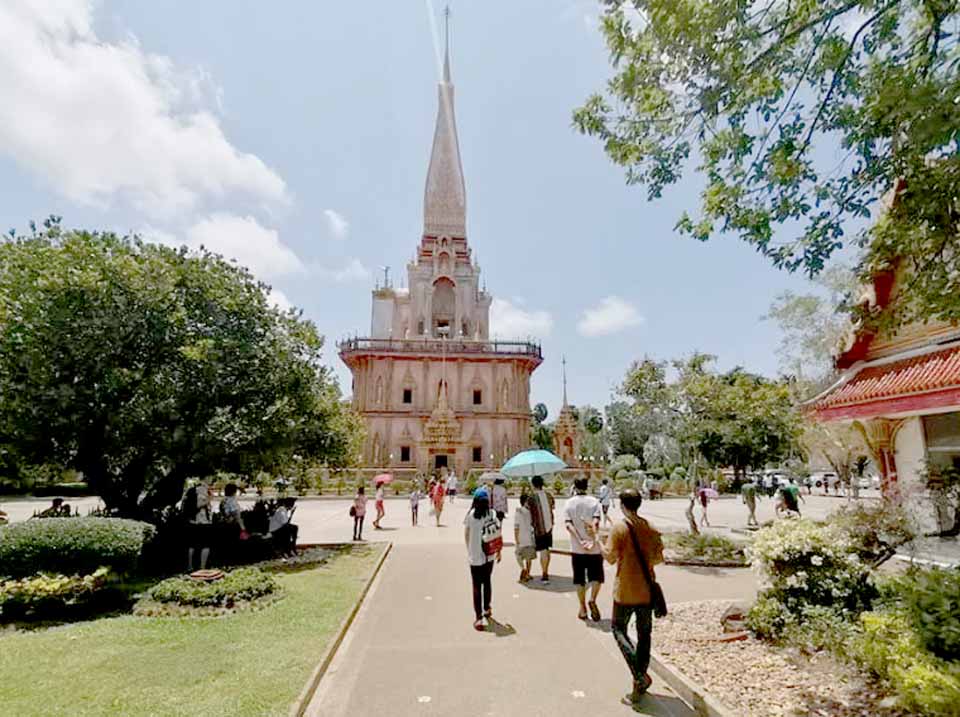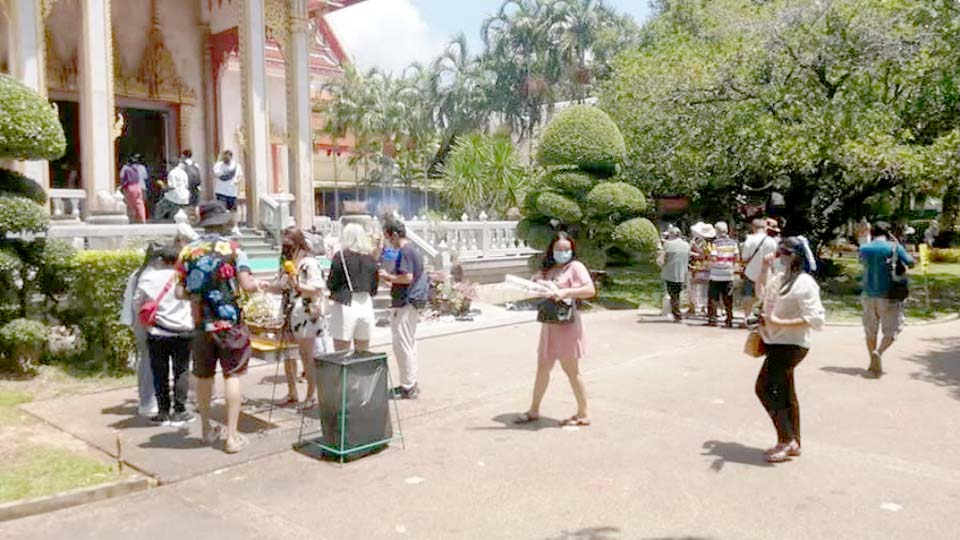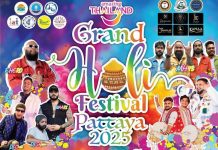
People across the country are now celebrating the Songkran Festival or Thai New Year, but with no parties or water battles. Temples and communities in many provinces held traditional Songkran celebrations under strict measures intended to contain the spread of COVID-19.
Families in the province of Phuket in southern Thailand brought their children to make merit at Wat Chai Thara Ram in the province’s city district. Many people came to attach gold leaves to the statue of Luang Por Chaem, as well as other holy items in the temple for good fortune.
To prevent the spread of COVID-19, the temple has set up an entry screening point where visitors are temperature screened and asked to check in and out of the temple by scanning Thai Chana QR code.
Announcements are constantly made reminding visitors to wear a mask at all times and practice social distancing. The temple currently allows people to enter the temple compound at specific times to prevent crowding.

In Trang province, families have joined the morning alms giving ceremony for Buddhist monks at home, or delivered food to the temples as a traditional way of celebrating the Thai New Year.
Trang province’s Songkran alms giving ceremony was generally held as a special event, but the event has been cancelled this year due to the surge of COVID-19 cases.
Moving to the northeastern province of Roi Et, Provincial Governor Chayan Sirimas presided over a Songkran alms giving ceremony for 101 Buddhist monks, a bird and fish releasing ceremony, and the traditional Buddha bathing ceremony held at Saket Nakhon plaza in the province’s city district. The province is asking all participants to wear masks, practice social distancing, and strictly follow preventative measures against COVID-19.
In the Central region, villagers of Op Thom subdistrict in Ang Thong joined the bathing ceremony of 59 Buddha statues and a folk sports competition was held by village headsmen as part of New Normal cerebrations of Songkran. (NNT)





